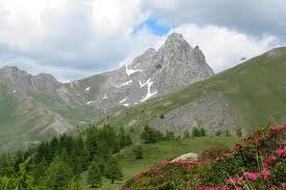 My ancestral Val Pellice in the Italian Alps.
My ancestral Val Pellice in the Italian Alps. “Longing has the flavor of grief,” Jenkinson said at the workshop I attended at Marylhurst last Fall. To me, longing feels ancestral, something bequeathed to us, an embodied response to the full-hearted, broken-hearted condition of being alive. Paired with mountains – which cultures throughout time have seen as the meeting place of Earth and the heavens, a place where humans can communicate with their gods – mountain longing carries a sense of spiritual quest. At the same time, mountain conjures a physicality, a one-foot-in-front-of-the-other challenge, plodding at times but with the promise of elevation, freedom.
I don't yet know why this name was chosen for us. Perhaps it references the experience of those who came before us to this place in eastern Ontario: the Algonquin of Pikwàkanagàn First Nation. Their name means "[beautiful] hilly country [covered] in evergreens". According to their web site, archaeological evidence indicates Algonquins occupied the Ottawa Valley for at least the last 10,000 years. Stripped of every imaginable freedom to practice their culture, speak their language, and traverse the land upon which they had subsisted for those 10,000 years, a deep legacy of longing must permeate the community to which I prepare to travel.
These speculations stirred reflections of my own, about my experience of mountains, of the people in my immediate lineage, or the loss and longing I carry.
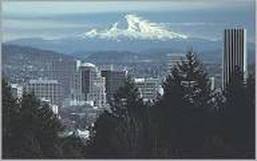
That first backpack trip confirmed my nascent longing for time in the mountains. Last year I took six backpacking trips into the Catalina Mountains of Southern Arizona and the Olympics and Cascades of the Pacific Northwest. This year I’ve been out twice; just this last weekend, a pilgrimage to the Chiracahua Mountains where the US Cavalry struggled for years to defeat the Apache.
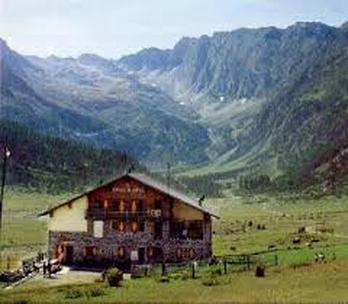 Rifugio Willy Jervis memorializes my Grandfather's brother
Rifugio Willy Jervis memorializes my Grandfather's brother On my Nonno’s side, the Jervis family hadn’t been Italian for long. Immense family pride connects us to the British Admiral John Jervis, who imposed limes on the Navy, thereby curing scurvy and allowing Britain to rule the world’s seas. By the mid-nineteenth century with much of the family off colonizing India, teenaged Annie fell under the spell of the Garibaldi Freedom Fighters who were in England raising funds from the anti-Papist well-to-do for their Italian unification campaign. She ran off with one of them to Italy; the family jewels came too. The Freedom Fighter took the jewels and gave her syphilis in return. (My grandfather carried a childhood memory of visiting this blinded aunt in a ruined palazzo in Naples.) Her brother, my great-great-grandfather, sent to fetch her back, stayed to tend to the Garibaldi wounded and married a Waldensian woman.
Elena Roland and Ernesto Jervis conducted their courtship in the mountains, where their adolescent Waldensian group spent every opportunity outdoors, picnicking, climbing, hiking up with skiis on their backs and gliding down. The Jervis brothers embodied athleticism, adventure, escape from my grandmother’s strict Victorian father. Years later, she recounted these glory days on Mount Granero to me in great detail; she gave me her cool woolen ski pants which I wore to shreds in my twenties.
When Mussolini declared Catholicism the official state religion and membership in the Fascist party was required for my grandfather to work as an engineer, they immigrated to the United States. I never heard Nonna express any yearning for the country of her birth – only those mountains. The mountain cost my Nonno's brother Willy his life: executed in the town square for aiding the Resistance with his mountaineering skills, a mountain refuge now bears his name.
My Nonna embraced America wholeheartedly: a Protestant country, Roosevelt, the freedoms despite wartime restrictions and their limited finances, and – the mountains. They lived in eastern cities but she loved the Mountain West. When she visited me in Oregon she instructed me in how to walk down a steep grade – “You see, you place your foot like this” horizontally, across the mountain, “and now like this.” An adult backpacker by then, I humored her, not yet appreciating that even though I thought I didn’t need to learn this lesson, she had a strong need to impart it.
When my Nonno died after ten years of cardiac and cognitive decline, I met Nonna back in Torre Pellice, her first return to her native land without her beloved husband and my first adult encounter with this ancestral place. We had planned for me to help her up to Mount Granero to spread his ashes. Before I arrived she got spooked about the legalities of transporting his remains. I found that she had already quietly mixed the ashes in with the soil of his mother’s grave while planting fresh begonias on it.
Of my father’s people, we know nothing beyond the assurance from his politically conservative, Southern Baptist sister that, “We’ve always been Americans” – but assuredly not “Native”.
While there is much I don’t know about my people, I do know that I come from generation upon generation of emigrants. From the Waldensians fleeing persecution over high mountain passes to my maternal grandparents leaving Italy and never looking back; from my father leaving Charlotte, North Carolina to attend Andover and Harvard and never going back (his father was the traffic manager for a cotton broker and his mother cashiered at the A&P; their first car was a used one they bought to drive North to witness his graduation); to his moving from Connecticut to Hawaii six days after my parents’ divorce, and never coming back; to my own definitive departure from my mother’s home to the opposite coast at the age of 17.
“Longing is choosing,” I heard Jenkinson say last Fall. “Grief is the midwife that turns desire into longing.” In my 51 years I have known much of desire, and, increasingly, something of longing. I have some experience of grief, but more, a sense of carrying the grief of generations in my family, mute and inaccessible without the skills I seek to learn; of being surrounded by the unacknowledged grief of my culture, so desperately in need of the skills I long to embody and leave behind.


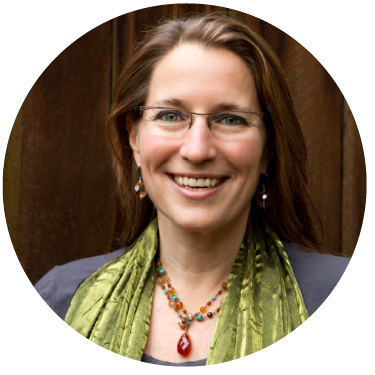
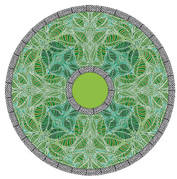
 RSS Feed
RSS Feed